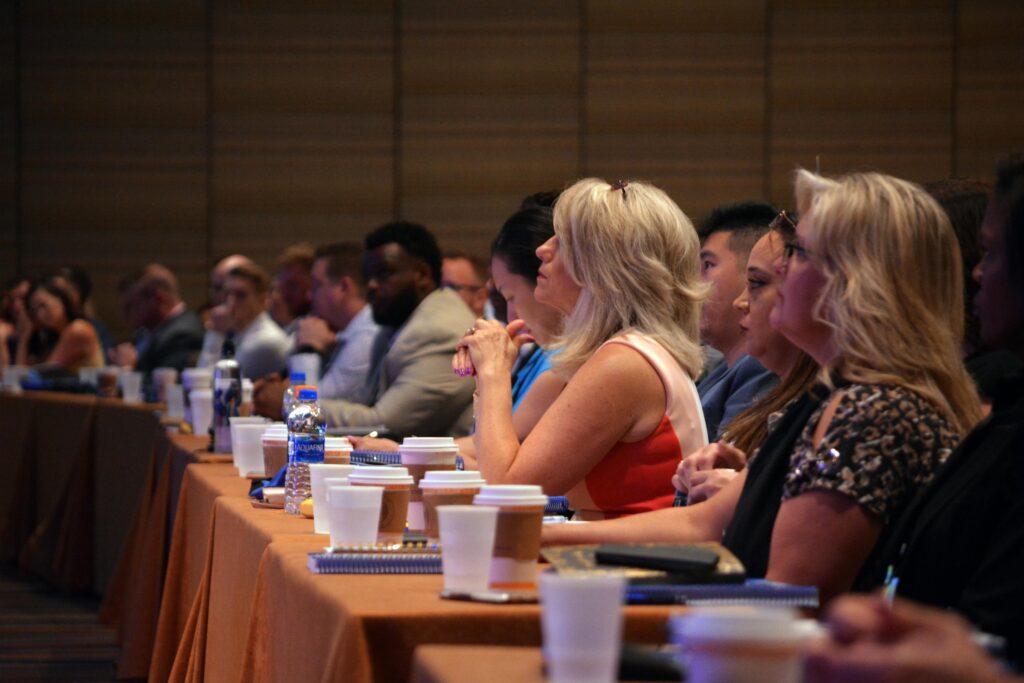Sales Kickoffs are Usually a Waste

Sales Kickoffs are Usually a Waste
How to fix that?
Twice in the last 3 weeks, I’ve been asked about running sales kickoffs. How to organize them, structure them, what to cover, the whole 9 yards.
Here’s the blunt truth for most companies, from startups with 5-person teams to middle-market companies with teams of 20+. (Enterprise companies in the 1 billion range + are a different animal and work with different resources, so we’ll exclude them from this discussion.)
These conferences are mostly wasted time and money. The intentions are good, but the results aren’t really there.
Let me start by saying I’ve participated in these conferences for years.
I’m usually the entertainment brought in at a 4-5 figure price tag to deliver some sort of P&L-altering “aha” for the team.
“We need some training,” a VP or CEO will say. They then list all the areas they want their reps to better perform:
- Prospecting
- Pitching
- Getting access to decision-makers
- Closing
- Negotiations (red herring, by the way)
- Holding ground on price
- Selling deals faster
“How much time do you need? An hour? 90 minutes?”
None of them really believe this sort of miracle will happen in 90 minutes, but, well, they have to have someone from the outside come in and do, well, something. Otherwise, why did we all take 1-3 days out of our work week and come stay at this hotel?
These kick-offs usually involve training (and most other elements) as a one-off event. And some people present plans. Awards are given. Someone from product or services shares what is going on, or some new things the reps can sell, or simply position more effectively. Sometimes there’s a team-building exercise, like golf or a ropes course.
But the time has to be filled, and people feel they need to make all sorts of magic happen.
The whole thing is wrong-headed.

When I coached high school football, there was so much we wanted to get done.
Every practice. From skill development, to developing the athlete (vs. the position), to understanding our scheme, to preparing for the opponent. We constantly had to whittle down what we wanted to the most essential.
It was painful cutting something we thought the players needed. But we had to because we only had so much time.
Sales kickoffs and conferences are basically the opposite. There’s all this time, and no one knows how to best use it.

So how might VP, CRO, or business owner make a kickoff or quarterly meeting valuable?
Here are a few guiding thoughts from years of observation.
On the objective. Simply be clear on this. Is the objective to keep them connected to each other and the company, given how distributed they are? Is it to have fun and celebrate? Is it to provide training and updates? Too often managers are planning without clarity, which makes it an exercise in futility.
On team-building. Only you can speak to your culture and what you want and need. But think through what will pull a team closer together. A round of golf won’t hurt, but will it help? You likely want these people to have a better relationship with their managers and with each other. Do you know how you get there? You have them open up. Try something like this, as nuts as it sounds: Have them spend 30-45 minutes writing down the best time in their life, the worst time, their biggest fears, their hopes, and what’s most important to them. Then have them share it with each other, managers included. You’ll get something out of that. Keep tissues ready. Call me after when some of the politics, gossip, and games-playing stops.
On training. I’ve trained for years, and frankly, I’m damn good at it. Guess what? You won’t change much in a one-day meeting. If you aren’t training regularly, to a process, with a focus, and reinforcing it at the management level, don’t bother bringing someone in. You’re better off using the time with a speaker or entertainment.
If you’re hell-bent on doing training, do this: have reps work on 1 skill in the 60-90 minutes you’ve allocated for training. Make the entire affair role play or simulation-based. Managers need to get in there with their people and do it. Want to go for broke? Get your best reps in front of everyone and role-play sales calls. Segments and the whole thing. Nothing beats this.
On entertainment and/or speakers. See “Objective” above. Entertainment is probably great. Speakers are helpful, too. Especially if they A) help your team think differently or better, B) provide insight into the market, customer, or competition, or C) simply build on a theme you’ve been stressing internally.
On plans. This includes KPIs, metrics, sales plans, the whole kit, and kaboodle. It’s been done where the reps share sales plans they’ve made, where they co-build with their managers at the event, and where they are given their plans. All are fine, though I prefer the middle option. Ultimately, though, if there’s no real accountability on the back end (a weekly or monthly reckoning of what we’ve actually done), it’s sort of a charade.
On awards. Love it. Keep it going. Celebrate people’s accomplishments. Just make the criteria clear, and find ways to reward multiple achievements, not just total gross sales, or most accounts won. What about these?
- Most upsells
- Largest deal
- Best margin
- Biggest improvement over last year
- Best finish to the year
If you have one award or only one criteria, most folks check out it as soon as they think they can’t win.
On product or service updates. Great. Keep them up. But tie this into regular meetings, coaching, and training sessions you have throughout the year so people don’t forget that new thing Product is hoping to push.
Is this list exhaustive? By no means. It gives you a few simple points to work through as you think about the time.
Have questions? Feel free to reach out.
What are the best exercises you’ve seen in conferences, kick-offs, or quarterly sales meetings?

Email me at adam@thenorthwoodgrp.com.



